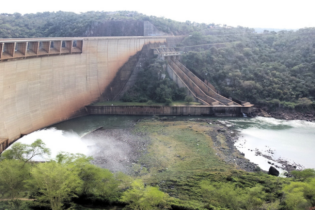In today’s world, with environmental concerns and a growing global population posing significant challenges, it is imperative that we prioritise the sustainable management of our precious water resources. Hydrological decision-support systems are emerging as indispensable tools in our mission to safeguard this finite and invaluable resource.
It is therefore important to shed more light on these critical components and their applications, given their significance in shaping a water-secure future. At the heart of hydrological decision-support systems is a vast archive of surface and groundwater hydrology-related data. These archives serve as the basis for well-informed decisions. In this era, where there is constant reference to “data being the new oil,” it becomes crucial to unlock all the insights concealed within these datasets adequately. By efficiently managing and utilising this trove of information resources, we can equip those in charge with essential knowledge to help them effectively navigate challenging water management dilemmas.Analyses
 One key aspect of hydrological decision-support systems is their ability to facilitate the analysis of water and land use planning. These tools provide invaluable assistance in optimising practices for both land and water conservation, from precision agriculture to smart urban planning for development.
The insights generated by these systems enable us to develop sustainable practices that strike a harmonious balance between human needs and environmental preservation.
In an era defined by big data, advanced analytics and techniques have revolutionised hydrology. The vast volume and complexity of hydrological data demand innovative solutions. By integrating big data analytics, hydrological decision-support systems offer a deeper understanding of hydrological processes, enabling more accurate predictions and effective management practices.
One key aspect of hydrological decision-support systems is their ability to facilitate the analysis of water and land use planning. These tools provide invaluable assistance in optimising practices for both land and water conservation, from precision agriculture to smart urban planning for development.
The insights generated by these systems enable us to develop sustainable practices that strike a harmonious balance between human needs and environmental preservation.
In an era defined by big data, advanced analytics and techniques have revolutionised hydrology. The vast volume and complexity of hydrological data demand innovative solutions. By integrating big data analytics, hydrological decision-support systems offer a deeper understanding of hydrological processes, enabling more accurate predictions and effective management practices.
Integrated solutions
Effective water management goes beyond isolated measures; it necessitates a catchment-wide perspective. Hydrological decision-support systems facilitate the conjunctive use of surface and groundwater, as well as managed aquifer recharge and rainwater harvesting. By promoting integrated solutions, these systems help maximise water availability while minimising waste and harmful environmental impacts. Hydrological and hydrogeological monitoring networks, advanced decision-support tools and modelling capabilities are essential for understanding and managing our water resources. These require interoperable systems and processes coupled with relevant expertise to provide real-time insights into water availability, quality and movement. By harnessing the power of technology, we can respond swiftly to changing conditions while mitigating potential crises.
Harrison Pienaar, Research Group Leader: Smart Water Use, CSIR






